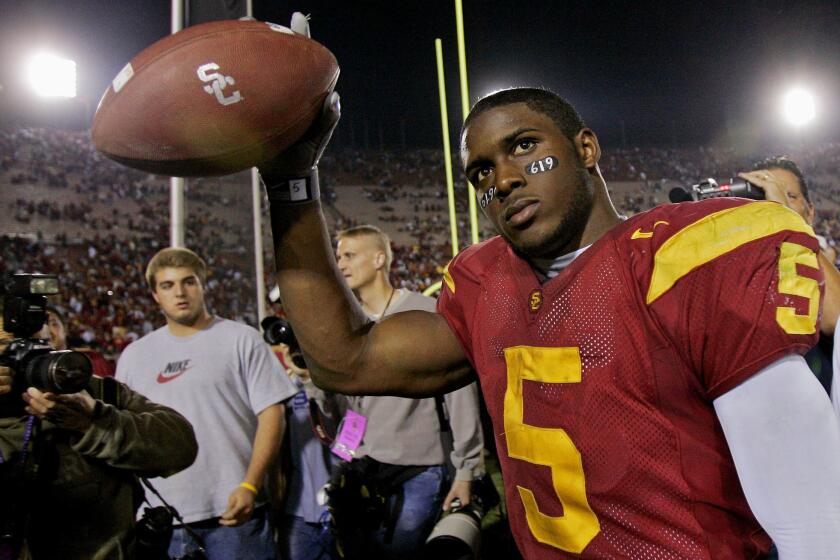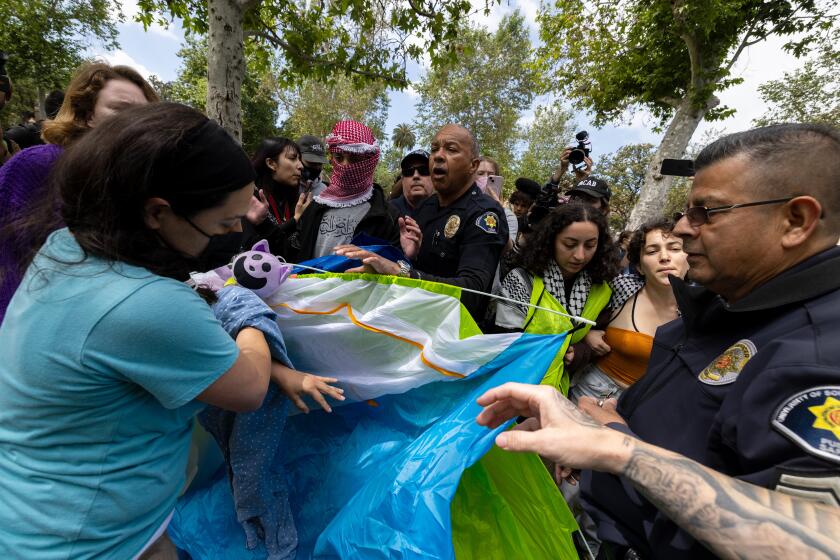Misunderstanding the university: The Brooklyn College case

In recent days, Brooklyn College has found itself targeted by a vehement campaign against its political science department’s decision to co-sponsor a forum on Thursday in which two speakers are expected to advocate a position that the campaigners heartily object to. City and state politicians have even called for defunding the college.
The position in question is that Americans ought to boycott, divest from and apply sanctions toward Israel. (BDS is the movement’s common abbreviation.) For the record, I oppose any call to punish all Israelis for the wrongful actions of some. But the merits of the position are not the question here. The question is: Do Brooklyn College political scientists have the right to promote political controversy? Should politicians withdraw public funds — in their own unwitting echo of BDS’ goal — because they take issue with a panel discussion?
The contretemps arose because a group called Students for Justice in Palestine asked the political scientists to co-sponsor talks by two people — an American feminist philosopher, Judith Butler, and a Palestinian activist, Omar Barghouti — aligned with the BDS movement. Objections were not slow to arrive. Wherever BDS gets a hearing — for example, at UC Irvine and UCLA in recent years — it causes a ruckus.
When two students expressed their concern at Brooklyn College, the political science chairman, Paisley Currah, wrote back: “You and like-minded colleagues should attend the event, voice your views and use this event as an opportunity to generate more dialogue and discussion among students. Perhaps you and your colleagues could even organize a panel discussion of your own.”
With these words, Currah was channeling John Stuart Mill, to the effect that education and enlightenment benefit when minority views are heard, partly because these views may, in the end, turn out to be right to some degree, and partly because the majority, when forced to confront objections, may well find its understanding sharpened and its previously stale views refreshed.
Mill is evidently not so much in vogue now, as Israel-right-or-wrong advocates seem to believe that their case is a delicate hothouse flower that will wither under any adverse exposure.
A rhetorical abyss opened in Brooklyn, with New York state Assemblyman Dov Hikind proclaiming that because college President Karen L. Gould refused “to take a stance against the college being used by a group with a racist agenda,” she is “a disaster for Brooklyn College students.” Hikind believes that the amplification of a view he deplores “creates a chilling effect on Brooklyn College students,” when, indeed, as the controversy so far amply demonstrates, it has the opposite effect — it heats things up.
You may not like that, but if so, you don’t like universities. Rather, if lock-step affirmations of faith are what you want, the Vatican and the Communist Party of China are the places for you.
At the same time, renowned Brooklyn College alumnus Alan Dershowitz deplored “an academic department ... taking sides in this debate. This department would never invite me, for example, to speak and state my opposing point of view.” In fact, in 2008, the selfsame political science department co-sponsored a lecture by Dershowitz in which one of his own controversial views — in this case, his defense of torture — went unopposed.
Meanwhile, Gould, while standing her ground on the political scientists’ right to sponsor Thursday’s event, declared that the college will in the coming months provide “multiple opportunities for discussion about the topics ... at the heart of this controversy.” The political science department, which claims to have never turned down any student request for co-sponsorship, has explicitly stated its openness to all manner of controversial discussions.
The point, of course, is that freedom of speech — on a university campus most of all — is freedom. Not every event requires balance. Divergent views require open access. Balance on every occasion is for tightrope walkers, not for robust universities.
There is a sinister pattern at work. Misunderstandings of the purposes of universities run rampant today in an America driven by fear that somebody, somewhere, may be thinking incorrect or unprofitable thoughts. Fundraising is paramount. Established universities expand by raising hundreds of millions of dollars, hoping that the research they cultivate will eventually profit the school financially. This can lead to remarkable new academic ventures, but also to timidity.
America’s universities are the wonders of the world, and it is not because they cringe from controversy. Students from around the world knock at our doors. (As chair of a doctoral program at one university, I field more than 100 requests for information every year from one country or another.) No doubt those students have many motives. Surely practical opportunities are at stake. Surely cultural and economic capital is to be gained from earning an American credential.
But surely too, those who arrive on our campuses admire, and glory in, the right to dissent — arriving, as many do, from nations where people are murdered and tortured for claiming it.
Todd Gitlin is a professor of journalism and sociology and chair of the interdisciplinary doctoral program in communications at Columbia University. His latest book is “Occupy Nation: The Roots, the Spirit, and the Promise of Occupy Wall Street.”
More to Read
A cure for the common opinion
Get thought-provoking perspectives with our weekly newsletter.
You may occasionally receive promotional content from the Los Angeles Times.






